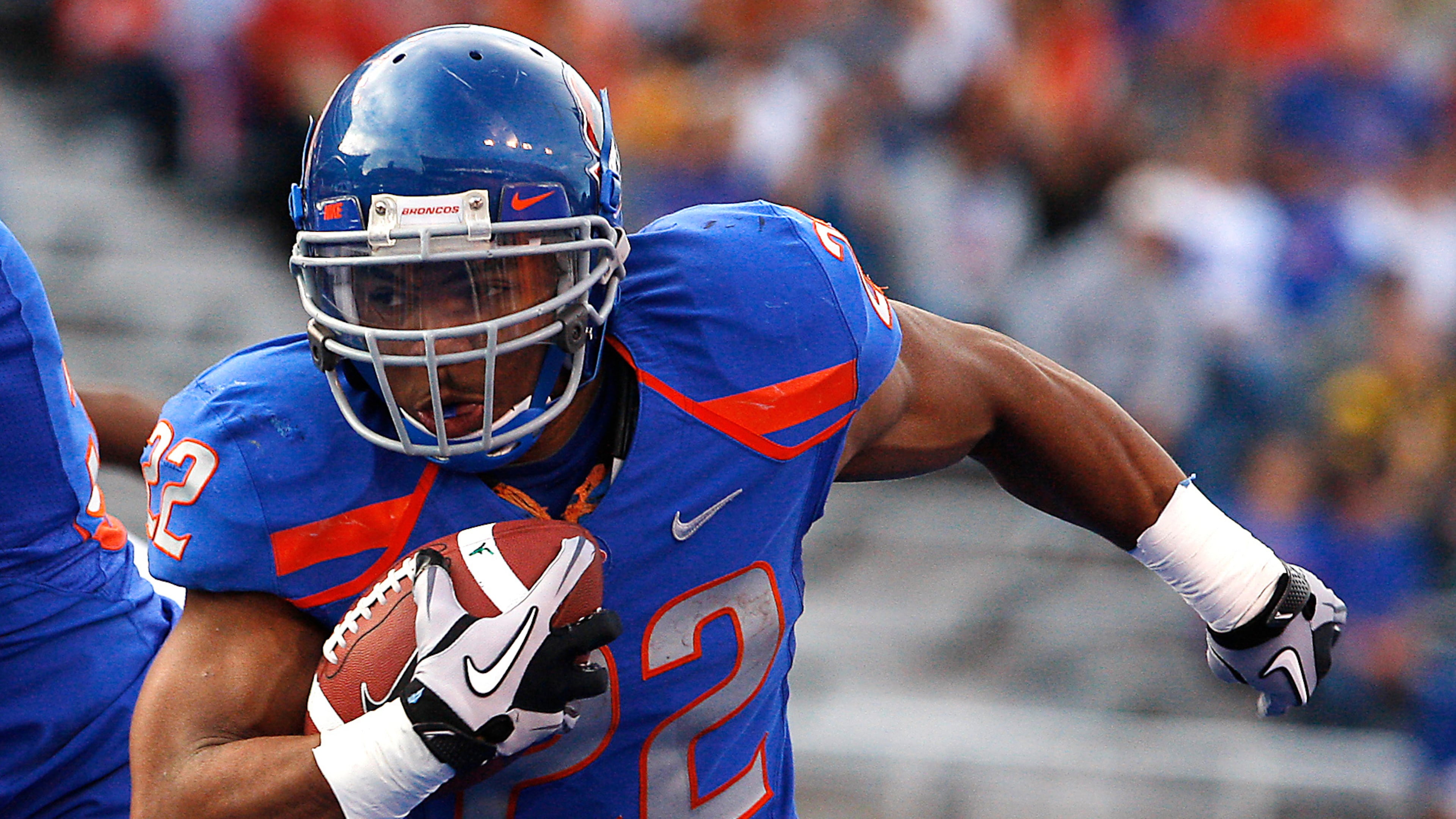Former NFL player who died in police custody battled injuries and mental health challenges

Doug Martin arrived on the campus of Boise State University nearly two decades ago to play football on its famed blue turf and, despite being a squat, little-known recruit from Northern California, turned himself into a hard-nosed running back and a first-round NFL draft pick.
Nicknamed the “Muscle Hamster” for both his size and running style, he was twice named to the Pro Bowl with the Tampa Bay Buccaneers during a seven-year NFL career that saw him rewarded with a big contract in 2016. But his bruising ways on the field also caused him to miss extensive playing time with a variety of injuries and contributed to his retirement.
His life ended tragically over the weekend in Oakland, the Bay Area city where he was born and finished his career with the Raiders seven years ago.
Martin, 36, died after what police described as a “brief struggle” with officers who arrested him early Saturday while investigating a break-in at a home. He became unresponsive and was pronounced dead at a hospital, Oakland police said. A cause of death has not been released.
“He just had this dynamic smile,” former Buccaneers coach Dirk Koetter recalled. “The guy was always smiling. He was a great teammate, always upbeat in the building. Everyone enjoyed being around him.”
Questions about encounter with police
Many questions are unanswered, including how many officers were involved, how long they struggled with Martin and how they restrained him. The officers who detained him have been placed on paid leave while the investigation continues, a standard police practice.
Martin's former agent issued a statement Monday at the request of his family saying that Martin privately battled mental health challenges that “profoundly impacted his personal and professional life.”
On the day he died, Martin felt overwhelmed and disoriented, fled his home and entered a neighbor’s home two doors down, where police confronted him, said the former agent, Brian Murphy.
Martin’s parents had sought medical help for him and contacted local authorities for support, Murphy said. “Ultimately, mental illness proved to be the one opponent from which Doug could not run,” he said.
Black people accounted for a disproportionate number of people who died after being restrained, beaten or shocked with Tasers by police officers in the U.S., according to a three-year investigation by The Associated Press. Black people of non-Hispanic descent made up about a third of the more than 1,000 deaths that AP documented over a decade, despite representing just 12% of the population.
People suffering a mental health crisis also were among those particularly susceptible to force, especially if they were hallucinating and unable to understand commands, the investigation found.
Martin, who was Black, arrived at Boise State from Stockton, California, and saw little playing time his first two seasons. He was even moved to defensive back for a while before returning to running back only because injuries had left the position thin.
But he led the school in rushing and was named all-conference his final two seasons, leaving as one of the greatest running backs in school history.
Tampa Bay traded up in the 2012 draft to select Martin in the first round, a move that paid off almost immediately. He broke out in the second half of his rookie year and was selected for the Pro Bowl.
He burst onto the NFL scene that season with a 251-yard, four-TD rushing performance against Oakland — tied for the 12th-most rushing yards in a single game in NFL history and still a franchise record for the Bucs.
Injuries derailed Martin's career
Martin described his running style as aggressive and relentless. During his career with Tampa Bay, he twice ran for more than 1,400 yards, but he failed to come close to that in the other four years mainly because he was hurt.
“His ability to make yards after contact was something," Koetter said, noting that Martin “was built low to the ground."
“We played a game at Philadelphia in 2015 where he just went off. And you go watch the tape, it’s not like they were all perfectly blocked. It was Doug breaking tackles.”
Martin ran 27 times for 235 yards that November day in a 45-17 victory. Koetter compared his style to current Kansas City running back Isiah Pacheco.
“Doug just had an angry running style,” Koetter said. “He had close to 300 carries in '15, and he was just never healthy after that.”
Martin was suspended for four games during an injury-filled 2016 season that caused him to miss the beginning of the 2017 season for violating the NFL’s policy on performance-enhancing substances and entered a treatment facility rather than appeal the ban.
He issued a statement at the time, saying that on the field he was determined to push through pain and injuries to become an elite running back.
“Off the field, I have tried that same approach in my personal life,” Martin said. “My shortcomings in this area have taught me both that I cannot win these personal battles alone and that there is no shame in asking for help.”
Bucs general manager Jason Licht said after the suspension was announced that Martin was “working through issues that are much larger than the game of football.”
Martin spent one more year with Tampa Bay before signing a one-year contract with the Oakland Raiders ahead of the 2018 season. He started nine games and rushed for 723 yards in his final season.
___
AP NFL: https://apnews.com/hub/nfl

